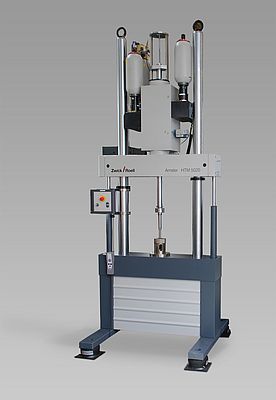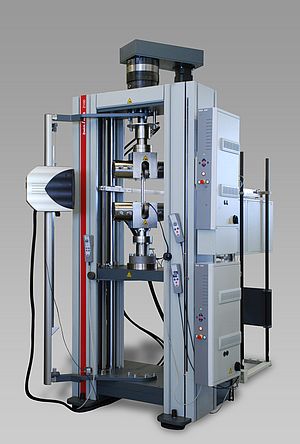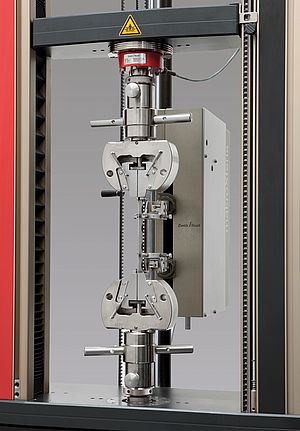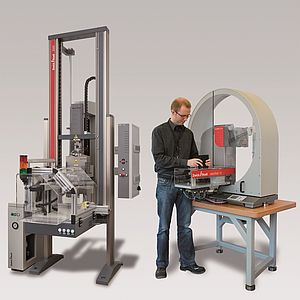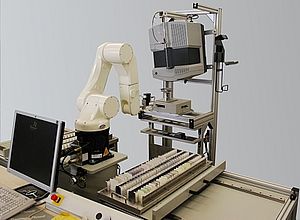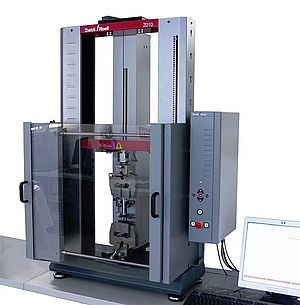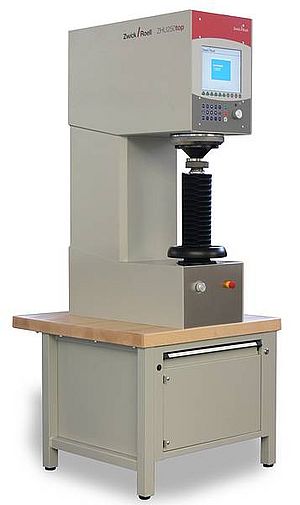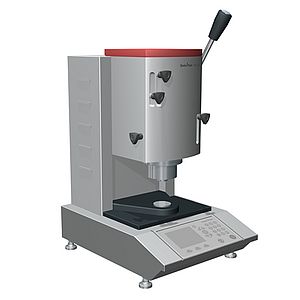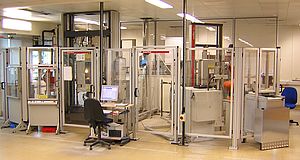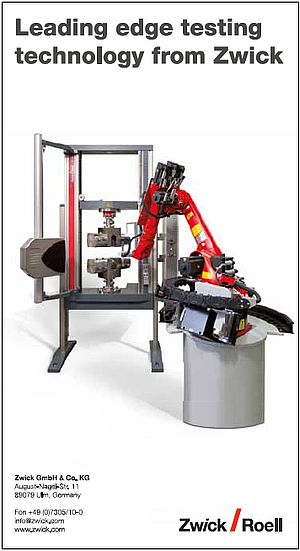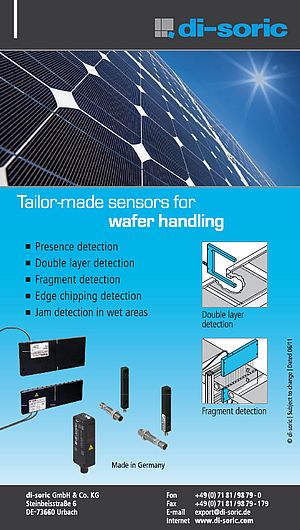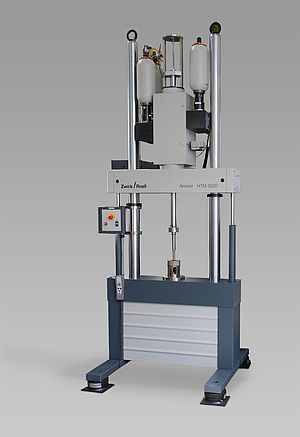The fracture behavior of materials is dependent on (among other things) the loading rate. Determination of the relevant characteristic values is primarily carried out using testing machines with a servo-hydraulic drive. The Amsler HTM series of high-speed testing machines developed by Zwick operate at speeds of up to 20 m/s with an integrated optical process for strain measurement.
Zwick's Amsler HTM high-speed testing machines with servo-hydraulic drive were developed to determine strain-rate-dependent material characteristic values for plastics and metals over a wide range of speeds. Applications range from high-speed puncture tests and high-speed tensile tests to peel tests and shear tests. They can also be used with adhesive and welded joints. The testing machines operate at a system pressure of 280 bar and constant speed is maintained during the test by ProPact correction software, which adjusts the signal to the 3-stage proportional valve to compensate for any fall in speed.
In these tests, which only last a few milliseconds, measuring values represents a challenge. The values involved include force, the travel from which the speed was calculated and specimen strain. For the first time Zwick is using a digital travel measurement system integrated into the piston. The advantages of this impact-resistant, non-contact solution are excellent temperature stability plus a high dynamic response and resolution of 25 µm at 20 m/s. Calibration is not necessary. A piezo-electric transducer measures force during the test; direct force measurement via strain gages on the specimen is additionally possible.
Precise determination of material behavior also requires measurement of specimen strain. Classical extensometers are ruled out here due to the high accelerations involved, while strain gages can only provide integral measurements over a spatially limited range. The ideal solution lies in non-contact optical methods, which can easily be integrated into the HTM testing machine and linked to it, giving an informative stress-strain curve.


